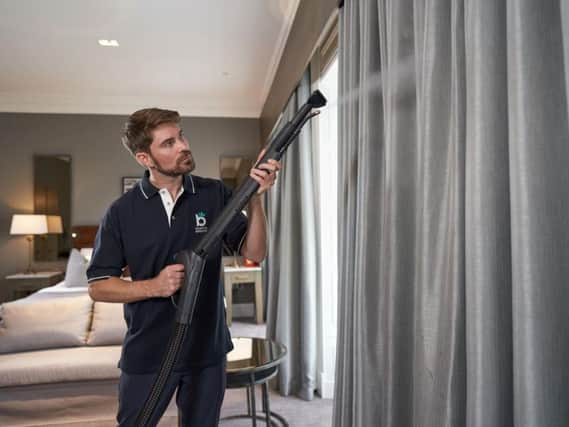Glasgow inventor uses Nasa technology to create world's first hypoallergenic hotel room


Room to Breathe is looking to secure its first hotel partner after developing a specialised six-step room cleaning process which it claims removes 99.99 per cent of allergens, mould, germs, influenza, volatile organic compounds and odours.
This includes using technology developed by Nasa and an “innovative” ultraviolet system to rid surfaces and textiles of micro-organisms. It also purifies air and adds protective antimicrobial coatings to surfaces.
Advertisement
Hide AdAdvertisement
Hide AdDeveloped by Gordon Bruce, inventor and director of construction services group Insite Specialist Services, Room to Breathe’s techniques use non-toxic cleaning products and environmentally friendly processes.


Bruce said this provides a “cleaner, less toxic alternative” to a standard hotel room.
He said: “So many people think that a microfibre mattress cover and a good old fashioned hoover make a room hypoallergenic, but that’s just not true. You can’t exactly take your hypoallergenic pillows and air purifiers with you whenever you travel, and it means allergy sufferers end up with a stuffy nose and red eyes on holiday or on a business trip – not ideal.”
It is estimated that around 44 per cent of British adults suffer from allergies.